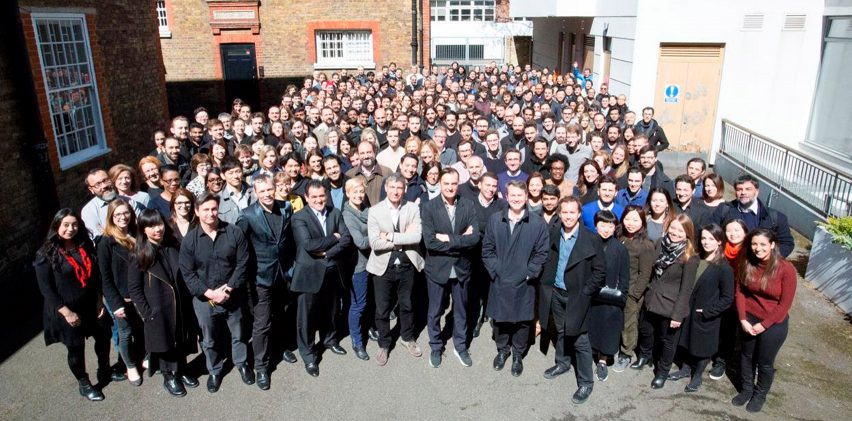
Zaha Hadid Architects announces transition to employee ownership
UK practice Zaha Hadid Architects has become an employee-owned studio in response to a growing demand for a "more accessible and egalitarian" profession.
The studio, which was founded in 1980 by the late British-Iraqi architect Zaha Hadid, has transferred ownership after establishing an employee benefit trust (EBT).
Zaha Hadid Architects said that the trust, which has no external shareholders, will allow it to reinvest all of its profits back into its studio.
Employee ownership gives all staff "a voice"
"We can now reinvest all profits back into the business, into our people, equipment and facilities to the benefit all our employees; allowing us to prioritise our work with visionary clients, communities and industry experts around the world to advance the quality of the built environment," the studio said in its announcement.
Zaha Hadid Architects added that its shift from a hierarchical model also reflected a new generation of architects' desire for a more equitable architecture sector.

"Younger generations of architects are demanding our profession become more accessible and egalitarian," the studio added.
"Supported by independent and transparent organizational systems and structures, employee ownership of ZHA will cultivate the skills and diversity that drives our decision-making and give every member of our team a voice in shaping our future."
Studio will "embrace new ideas and technologies"
Zaha Hadid Architects has offices in both China and the UK, across which it employs more than 500 staff. To make its move to employee ownership, it has established an EBT in which assets are held on behalf of employees.
The aim of an EBT is to reward and incentivise staff by owning shares, which in turn, can encourage loyalty.
"Building upon the experimentation and pursuit of discovery that Zaha so championed, we embrace new ideas and technologies to deliver a repertoire of projects that become more spatially inventive, more structurally efficient, more technologically advanced and more sustainable with each new design," the studio explained.
Zaha Hadid Architects is not the first architecture studio to transition to employee ownership.
Other architecture studios owned by its employees include Buckley Gray Yeoman, Make, Allford Hall Monaghan Morris and most recently Hawkins\Brown.
Announcing the transition in September, Hawkins\Brown said it was an effort to "maintain a culture where everyone at the practice has a voice".
"The idea of the elusive 'starchitect' – singlehandedly producing incredible buildings with the wave of a pen – is a myth, in our eyes," it added.
Employee ownership can "facilitate growth"
In 2016, transport design studio PriestmanGoode also made the move. Its chairman Paul Priestman said it was for the benefit of the future of the company and to ensure staff "felt valued and safe".
He added that "if more founding partners harnessed the value of empowerment and delegation as positives, it would facilitate growth and enable them to work on large international projects".
Zaha Hadid Architects' announcement follows disputes between the studio's current director Patrik Schumacher and three other parties in 2018 over Hadid's estate and the running of her company.
Following Hadid's death in 2016, Schumacher was named an executor of her will, alongside the late architect's niece Rana Hadid, former Serpentine Gallery chairman Peter Palumbo and artist Brian Clarke.
Schumacher began an unsuccessful High Court action in a bid to remove the other executors of her will to allow independent, professional executors to be appointed.
The main photo is of the Opus hotel taken by Laurian Ghinitoiu.